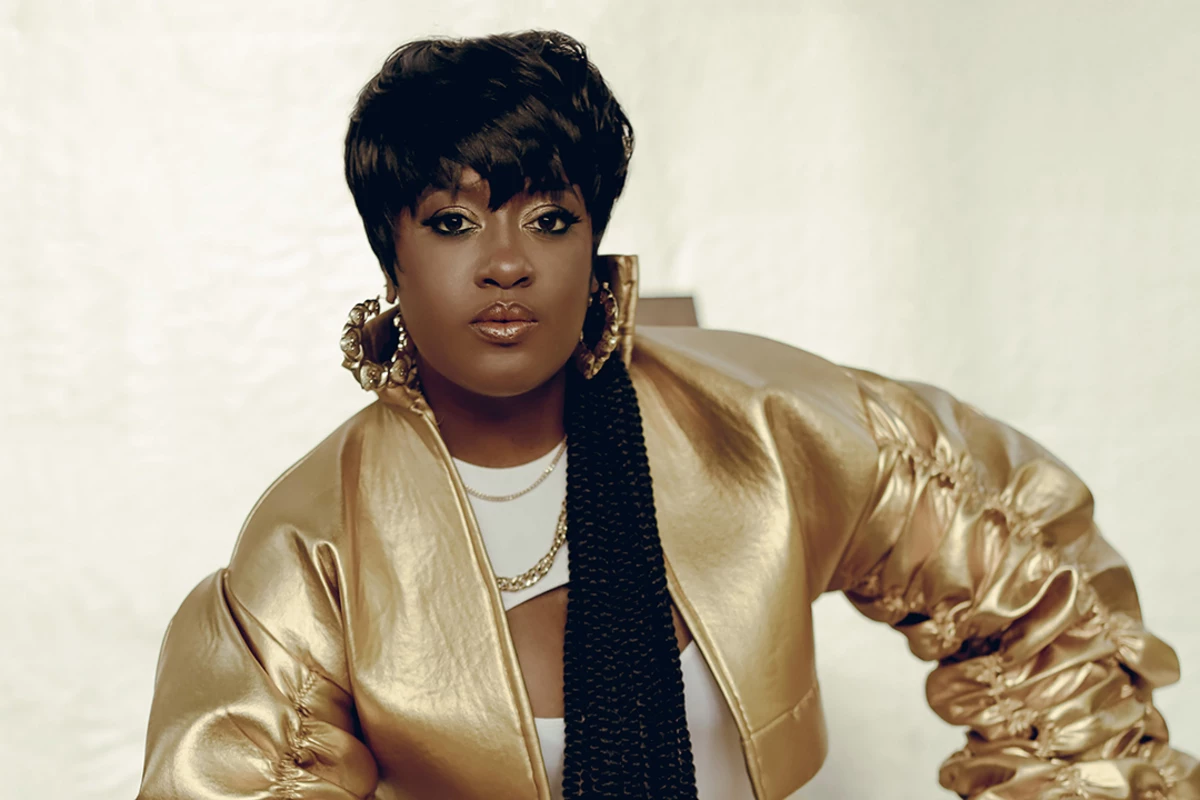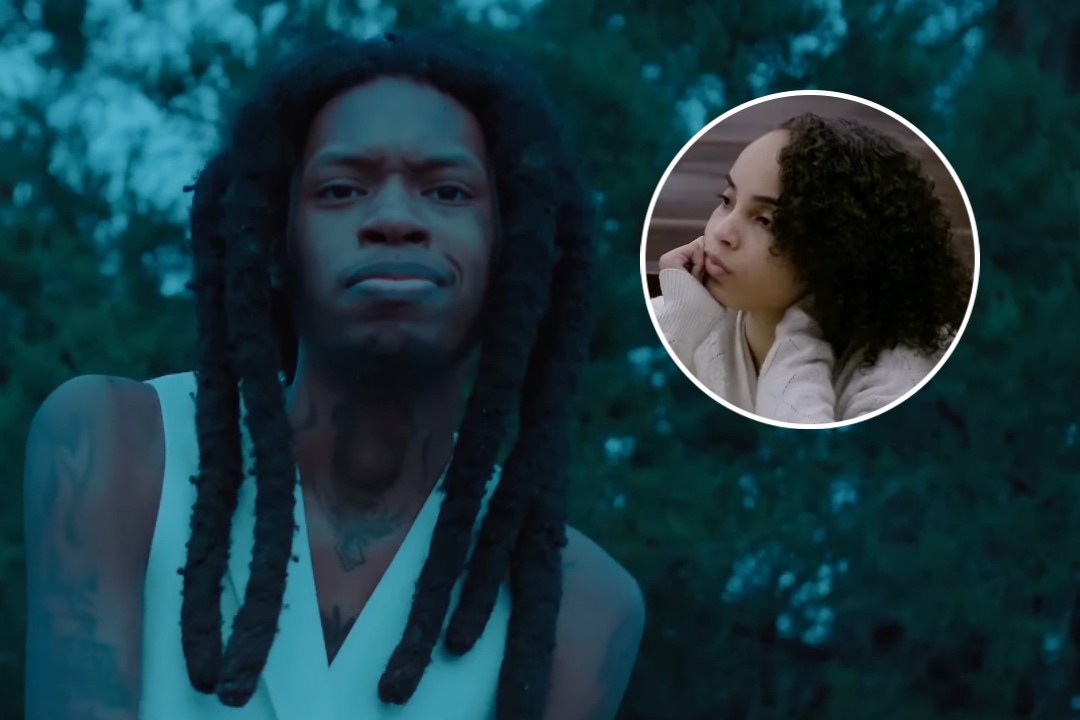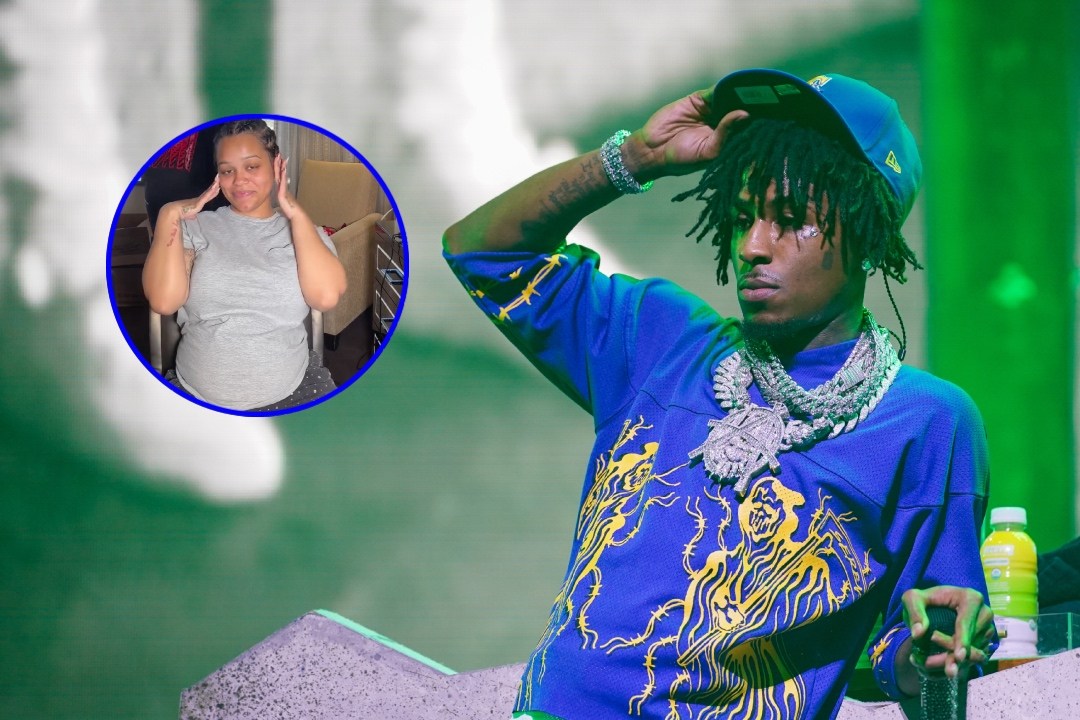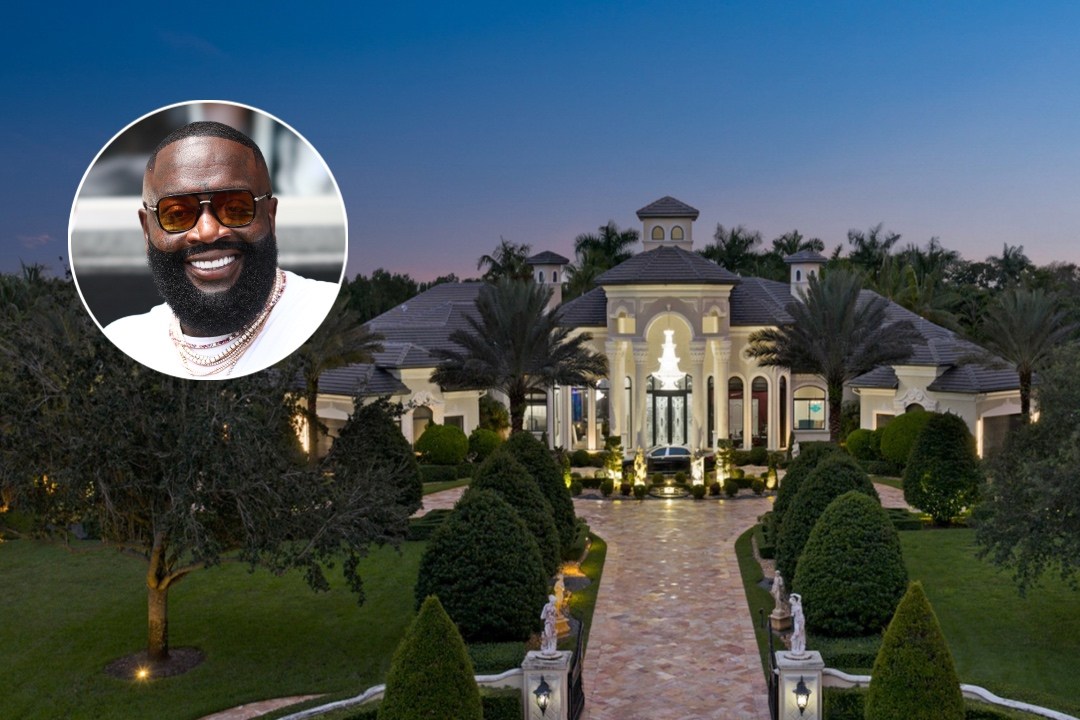Rich Spirit
Rapsody’s five-year hiatus between albums birthed a level of introspection like never before. Her latest project is a direct reflection of the space she’s in.
Interview: Aleia Woods
Editor’s Note: This story appears in the Spring 2024 issue of XXL Magazine, on stands now.
The truth is often scary and accepting it can require courage. This is something Rapsody, 41, has learned over the last four years while working on her latest album, Please Don’t Cry. The Snow Hill, N.C. native took somewhat of a rap sabbatical following the release of her last album, Eve, which came out before the Covid-19 pandemic. As the world shut down, Rapsody utilized the forced stillness to observe, assess, look inward and strengthen her faith. Since then, she’s dropped a few songs and recorded some guest features for other artists, but mostly focused on finding herself.
Amid Rapsody’s period of reflection and personal evolution, the MC faced doubt about her place in hip-hop, where female artists’ approach to rap has shifted and viral actions can sometimes take centerstage. This isn’t Rapsody, who’s more of a traditional hip-hop purest, focused on her lyricism. She has no desire to conform to what’s become the norm for most of today’s successful women hip-hop artists to expedite her journey to the next level of success.
On a sunny afternoon in February via Zoom, the Jamla/Roc Nation artist speaks candidly from her car while in Los Angeles following an eventful Grammy weekend. She left the awards feeling full and inspired after opting for solitude as she perfected her latest opus, her fourth solo album in 12 years. It’s a project that offers a side of vulnerability that she’s yet to expose. Here, Rap speaks on her new effort, the recent renaissance of women in rap, finding herself and where she fits into all of it.
XXL: What can you say about your new album, Please Don’t Cry.
Rapsody: I approached this album where I wanted to do something where people got to know me. It started out where I always wanted to be a good representation for women, and be a voice for women and have a connection for women. And I was looking at my metrics, and it was like, my male fan base is bigger than women. So, my question was, what is my disconnect? And it got me just to thinking about the artists that I love and the music that they make.
I’m just like, They really allow you in. To know who they are and have a real genuine connection. And that led to conversations with two of my good friends, and they both said the same thing on separate occasions. They were like, “Rap, you have to allow people to know that you’re not perfect.” When I never thought that I came off that way, but I understand because I didn’t share much about my real life in interviews. I keep it very political, unproblematic. I’m just going through life, and it clicked.
I was already going through the healing journey of reintroducing myself to myself. And I was like, Well, this is a perfect time because when I make albums, they’re snapshots of our lives, where we are in that time. And that just aligned with where I naturally was, where I had just gotten out of a relationship that I didn’t want to end. And I was healing through that.
I think in going through that journey, you learn a lot of things about yourself, things that you might not have thought you want to change, and grow, and evolve in or peel back the layers of why you even do the things that you do.
Eve, your last release, came out in 2019. When did you start working on this new project?
I started this album right when the pandemic started, so March of 2020. And I think we were on a lockdown for what? Two-and-a-half, three years? So, I think I spent a lot of time by myself for multiple reasons. That was part of it.
But two, I think being still for so long and having that time, I really got to sit with myself. And so, I really took time and sat with myself and went through some healing things, some growing things, like mental ascension, spirituality. It was like I had to cocoon, and now I’m like, OK, I’ve grown a lot. I’ve healed a lot. I know more of who I am.
On your lead single for the new album, “Asteroids” produced by Hit-Boy, you said, “I thought most of the love would come back from my ladies/’Bout 60/40, I’m just making an observation.” Do you hope to balance the scales with Please Don’t Cry?
I guess you can never be in control of how people receive you and what they like. I can’t go in expecting it. My only answer was, Yo, you have to show people again that you’re human. I would love to have more women in my fan base. I understood how important it was to have the village of sisters and women in your life. I want to reflect that in my music. I want to make music that other women feel like, Yo, you’re one of us, right?
Sometimes I don’t feel like that. I don’t feel as accepted and as loved as I would want to be. I would love for it to, but if it doesn’t happen, it doesn’t happen. But I can’t say that I didn’t try. I think in pausing and looking back, I had to look at my past projects and the self-reflection again of why I don’t connect with the women as much. I had to have a real honest moment with myself. It’s like, at that time, I was trying to just prove I could rap, and rap as good as the guys. And yeah, [it’s] a man’s world, but we’re going to live in it, too. But going back, I had to understand that was a chapter in my life where you weren’t the most confident. You didn’t know who you were. You were still trying to find yourself. And you were a grasshopper in the music industry.
And being that I was up under men, who supported me, who never tried to make me anything I wasn’t, but I had to learn that. You were taking more of their thoughts and their opinions, and you were so influenced by the village of men that you lost your own voice in that.
What does career satisfaction look like for you?
At one point, it was like, Man, I would love to take those pictures holding three, four, five Grammys, right? And I love the plaques on the wall. But I think those are the bonuses for me. Those are the pluses. A good career for me looks like one, to wake up and do this for years, for 20, 30 more years. To continue to be able to always do the art and not have to have another job. To be able to travel the world and do something that helps add to the culture that makes it easier for the next person behind me.
But the things that really cut through in a completely different way is when you meet a fan. I was in Boston one time, and after the show, I was doing a meet and greet with the fans. And this White boy came up to me. This is Eve Tour. And he said, “Thank you for making Eve because I got to learn a lot more about my Black girlfriend.” And it’s moments like that that take me away.
The rap scene has been dominated by women within the last couple of years. What are your thoughts about younger women rappers coming in and shaking things up?
I think it’s exciting to have this renaissance, I could say, of women’s presence in hip-hop. We haven’t seen anything like this, in the vein of this, since the ’90s. On a cultural level, I think it’s dope. I love seeing all the women coming up and doing their thing. They’re rapping the hardest. The bars are the hardest. My mission is still the same on a business level.
I wish there was more variety and more balance. And that’s not to say we need to take anybody away ’cause look, we need all the energy because life, you don’t do the same thing every day, all day. We need soundtracks for every part of our life. And the ladies are giving you music.
Is it frustrating that your career success has taken longer than some of the newer women rhymers who have a different approach to rap?
I wouldn’t be honest if I said it’s not frustrating. That’s the human part of me, right? Let’s just be real. You see what’s going on and social media is going to make sure you see it and keeps it in your face. So, you spend so much time, and you work so much harder, and you invest so much in yourself, and your time, and your money and the sacrifices that you make to make high-level art. For it not to be acknowledged or for it not to get the spotlight in the same way that other things get the spotlight, where you feel like, why can’t we all equally get the same support?
It can get frustrating. That’s the part where you have to audit yourself. The most frustrating part to me on a business level is when there’s only one narrative pushed and there’s only one image pushed. For me, I don’t ever want an artist to feel like they have to compromise themselves because that’s what they think it takes to be successful. We love Cardi B because Cardi is authentic. We love Tierra Whack because Tierra Whack is authentic. We love Latto because Latto is authentic.
You honored Queen Latifah at The Kennedy Center Honors last December and performed as part of a tribute to her. How was that experience?
Nerve-wracking. I’ve done a couple of honors like that, but never in this way. And I’m just thinking, Dionne Warwick is there and all these other faces and the U.S. President is there. They had been trying to get to me, I think, for a month, but nobody had my manager’s right email.
So, I got the call a week before the event. I was stressing because it was such a high honor to be a part of something so special, and so big to one of the artists that influenced me, that has had an immeasurable imprint on the culture.
What is it that brings you joy? What makes you happy?
I’m learning that joy is so much rooted in the simpler things of life. Time is precious. Taking the time to sit with myself and say, “How are you feeling? What do you want to do today? Today, I want to go get a massage. Today, I don’t want to answer that phone call, so I’m not going to answer that phone call.”
Spending time and making time for my family, going on vacations. Traveling brings me joy. Shopping absolutely brings me joy. I love to shop. I love clothes, and I do that for myself more than I do for others. Creating. I think that’s just it. Waking up and pouring into the things that make you happy in that moment. It could be different things for me, but those are some of the major things that bring me joy. Being around people that makes me laugh. Laughter brings me the utmost joy. I had to learn, too, not to take on other people’s energies, not to feel like I had to solve everybody’s problem.
I was talking to a friend the other day, and I was like, “Yo, you know what? I spend a lot of time and a lot of brainpower trying to help you. And I realized I don’t have to do that anymore.” You know what I’m saying? And not in a negative way. It’s like, I’m there to be helpful, but a lot of times, people can create their own problems and you have to sit back and be OK with it. I’m going to be supportive, but you have to figure this out and not feeling like you’re responsible for everything.
That’s huge.
Girl, let me tell you, it’s been a journey to get here. I’m such a giving person. I’ve always been that way. My mom said, or everybody around me said, “You have a problem with saying no to people.” I’m like, Yeah, I do. If I feel like somebody needs help, I’ma try to figure out a way to be there. But I learned that I was wearing myself thin. Even in my healing journey and understanding why I even do that, I had to go back to like, Why is it that you feel like you have to give, give, give? And I was like, Man, if I look back when I was a child, I got a lot of positive reinforcement from giving. So that’s how I knew how you get love, right? That’s how people love you by being nice for them, by showing up for them. And that’s why I did it. And I had to understand, love can’t be transactional in that way. I had to even learn what unconditional love was.
rapsody spring 2024 issue
loading…
Read Rapsody’s interview in the Spring 2024 issue of XXL Magazine, on newsstands now. The new issue also includes the cover story with Gunna and conversations with Metro Boomin, Danny Brown, Teezo Touchdown, 42 Dugg, Jim Jones and Maino a.k.a. Lobby Boyz, That Mexican OT, 41, BabyDrill, Rapsody, actress La La Anthony, BigXthaPlug, Rob49, Reuben Vincent, singer Tyla and producer Tate Kobang. There’s also a look at how social networking has a chokehold on rappers’ feelings, how hip-hop in 2024 is experiencing more wins than losses, and the ways in which kid rappers are thriving thanks to social media.



